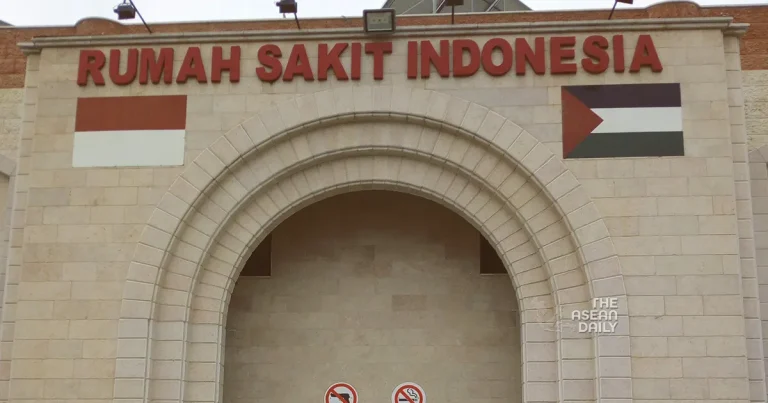17-11-2023 (GAZA) The Indonesian Hospital in the besieged Gaza Strip, funded by Indonesia, has been forced to shut down due to a lack of supplies. Despite efforts to sustain operations with solar panels, cooking-oil fed generators, and the assistance of volunteers, the hospital has reached its limit and can no longer offer services to patients.
Atef al-Kahlout, the director of the Indonesian Hospital, stated in an interview with Al Jazeera on Thursday that they are unable to provide beds and urged ambulances not to bring in any more wounded individuals. With 45 patients in need of urgent surgical intervention and around 500 patients awaiting treatment, the hospital has far exceeded its maximum capacity of 140 patients.
The closure of the Indonesian Hospital is part of a broader trend, as all hospitals in Gaza City and the northern region have also ceased operations. The situation is dire, with a severe shortage of medicines forcing doctors to resort to amputations due to organs rotting inside patients’ bodies.
Tragically, one local staff member lost their life on the first day of Israel’s attack on Gaza, and an Israeli raid on October 26 claimed the lives of the families of two Palestinian doctors.
Concerns also surround the fate of three Indonesian volunteers who have become uncontactable since Israel imposed a communications blackout. Sarbini Murad, head of the humanitarian group Mer-C, which built the hospital in 2011 with $8 million donated by the Indonesian public, expressed shock at learning about the hospital’s fate through the news.
Videos shared by the volunteers before communications were cut off revealed the challenging conditions they were facing. The hospital was operating in total darkness, with medicines depleted and overcrowding becoming a significant issue. The Indonesian Hospital had become a sanctuary for Gaza residents seeking refuge from Israeli bombings.
The World Health Organization reported on November 14 that nearly two-thirds of Gaza’s 36 hospitals are no longer functioning, and those still operational struggle with limited resources. Israel has blocked access to diesel, making it logistically difficult to transfer critically injured patients to Egypt for treatment.
Despite efforts by the Indonesian Hospital to keep the power generators running with cooking oil during a power outage, the larger generators failed to function properly. The hospital’s main building remains standing, but some ceilings have collapsed, windows are shattered, and electricity cables are exposed.
Israel had previously alleged that the Indonesian Hospital was situated above Hamas tunnels and near a missile launch pad, but both Mer-C and the Indonesian foreign ministry vehemently denied these claims.
As the conflict continues, the United States, Israel’s ally, expressed its objection to the bombardment of Gaza’s hospitals. The US State Department called for the protection of civilians and supported safe evacuations for patients by an independent third party.
The death toll from the ongoing conflict between Israel and Hamas as of November 14 stands at 11,320, including 4,650 children and 3,145 women.
Indonesian President Joko Widodo, while attending the Apec summit in San Francisco, pledged to protect Indonesian citizens and public facilities, including the Indonesian Hospital in Gaza. He called for a ceasefire and urged the international community to take action to end the atrocities in Gaza.




